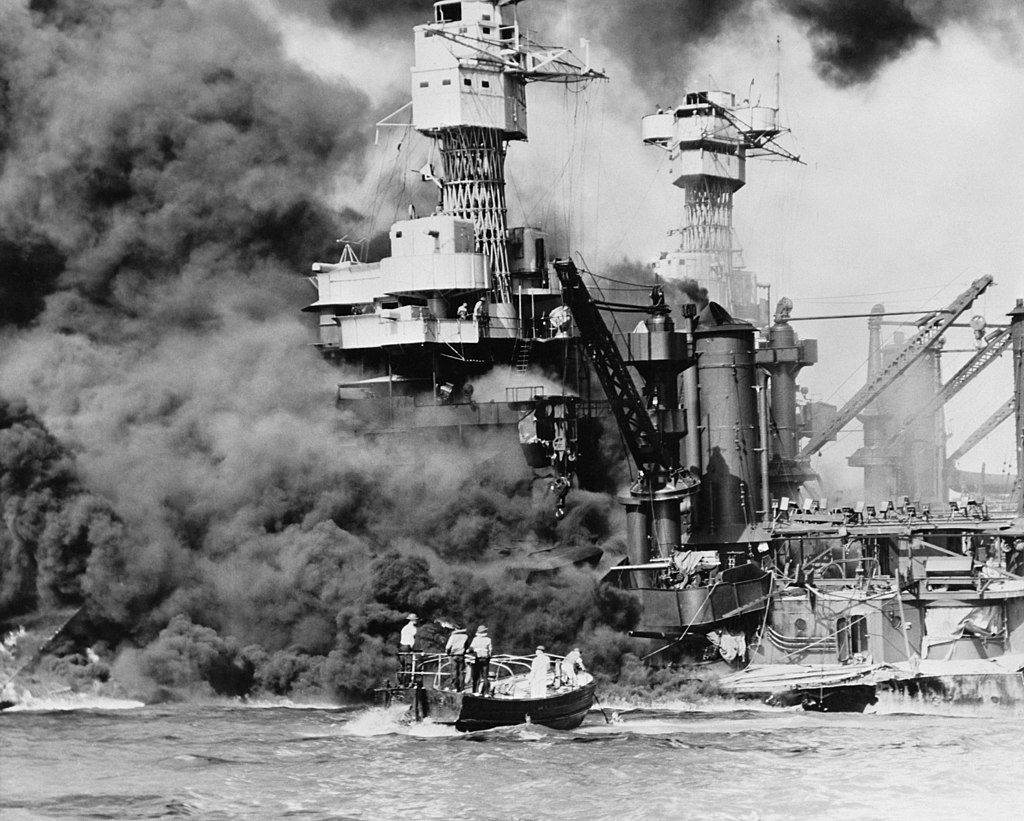
No Longer Post-9/11
Some events are so dramatic – and often traumatic – that they define an era. Every American who was an adult on December 7, 1941, remembers where they were when they learned that the Japanese had attacked Pearl Harbor. Similarly, I remember looking out my car window puzzling at the clear sky when I heard on the radio that a plane had accidentally crashed into the World Trade Center. Everyone I know has a similar story if they were older than about five that day.
Pearl Harbor was a bloody morning and a moment of pain, but it also defined America at a kind of apex. In retrospect Pearl Harbor did not mean America vulnerable and humiliated, its fleet reduced to mangled wrecks poking out of the water along Battleship Row. It meant America taking its place as the world’s superpower, churning out dozens of aircraft carriers, defeating Nazi Germany and Imperial Japan. After the war America had a new image of itself as the super hero flying around the world and arriving with the shiniest weapons to fight its Soviet archenemy and his henchmen.
We live in the shadow of each event until we don’t. Pearl Harbor still lives in infamy in the United States, but for the next generation the moment of trauma was November 22, 1963. The Kennedy assassination was not consequential the way Pearl Harbor was, but it marked the beginning of the 1960s. One by one, old assumptions were punctured: about race, about gender, about what the good life looked like, and about America’s role as the world’s savior.
To me the next watershed moment was the fall of the Berlin Wall in November 1989. We watched it on the exceptionally clear Sony TV my sister-in-law had given us for our wedding a few months earlier. The uncertainty and embarrassment that America had felt in the second half of the Cold War gave way to triumph. The Soviet Union fell with hardly a shot, South African apartheid was abandoned, Yitzak Rabin shook Yasser Arafat’s hand, and the US regained leadership of the world economy with a life-changing stream of computer hardware and software products.
This period of peace and progress was the shortest of eras, vaporized in the explosions of September 11. Now our soldiers were dying in distant incomprehensible countries once again, we were walking through metal detectors without our belts in order to guard against underwear bombers, and a financial meltdown threatened to rival the Great Depression. The primary external enemy was Islamic jihads of various stripes, and the main political battles were over how – and how much – to fight them.
That moment has ended as well. Now we are living in the post-January 6 era.
I remember sitting at my computer in my home office, laptop on a desk in front of me, second monitor above it. I took a break from work to check the newspaper to see what was happening with President Trump’s speech about the election. There above eye level I saw an image of hordes mobbing the Capitol and fighting the police. I immediately picked up the phone and called the Trump voter I knew best. “Dad, are you watching this? Is this what you wanted? Is it?”
“No, this is wrong.”
“This is what you’ve given us!”
“I’m as mad as you are!”
My father was the only Trump fan I know who abandoned Trump over his election denial. America had unified around Pearl Harbor and at least had a couple of years of unity after 9/11, but the Capitol police had not even taken down the barricades before Republicans started to rally around the traitor leading their party.
Senate Majority Leader Mitch McConnell denounced the president, but refused to convene the Senate, forcing a delay in the impeachment trial till after Trump left office. Then he voted against conviction because Trump was already out of office.
Others backpedaled mightily, denying what we all saw on TV that day. The sillier tried to blame antifa. The more sophisticated made up an imaginary reasonable Donald Trump who was raising legitimate questions about the election and working to reign in the mob. This imaginary defendant has little in common with the lying narcissist who cared only about winning and was willing to torch our government to do so. But it was the kind of deflection that any good attorney creates for a guilty defendant.
One guy I knew speculated that the President didn’t know about the attack on the Capitol because he was having lunch. The guy insisted he was being serious.
For the first time since 1865, the greatest threat to America comes from America. An American President refused to acknowledge losing an election, and instead of disappearing in disgrace like Nixon after Watergate, he is supported by about half the country. If he has enough votes on election day, he and his lackeys can return to office with a mandate to “do whatever the hell they want”. Slightly less support may still be enough to plunge the country into chaos or worse.
Or perhaps America will choose wisely, having tried everything else first. Rather than the decades of fighting we brought upon ourselves after 9/11, a swift and peaceful rejection of his politics of grievance will allow the Republican Party to turn away from its rejection of reality and again embrace the kind of conservative politics that belongs in a democratic republic.
Maybe the post-1/6 era can end before a new trauma takes its place.